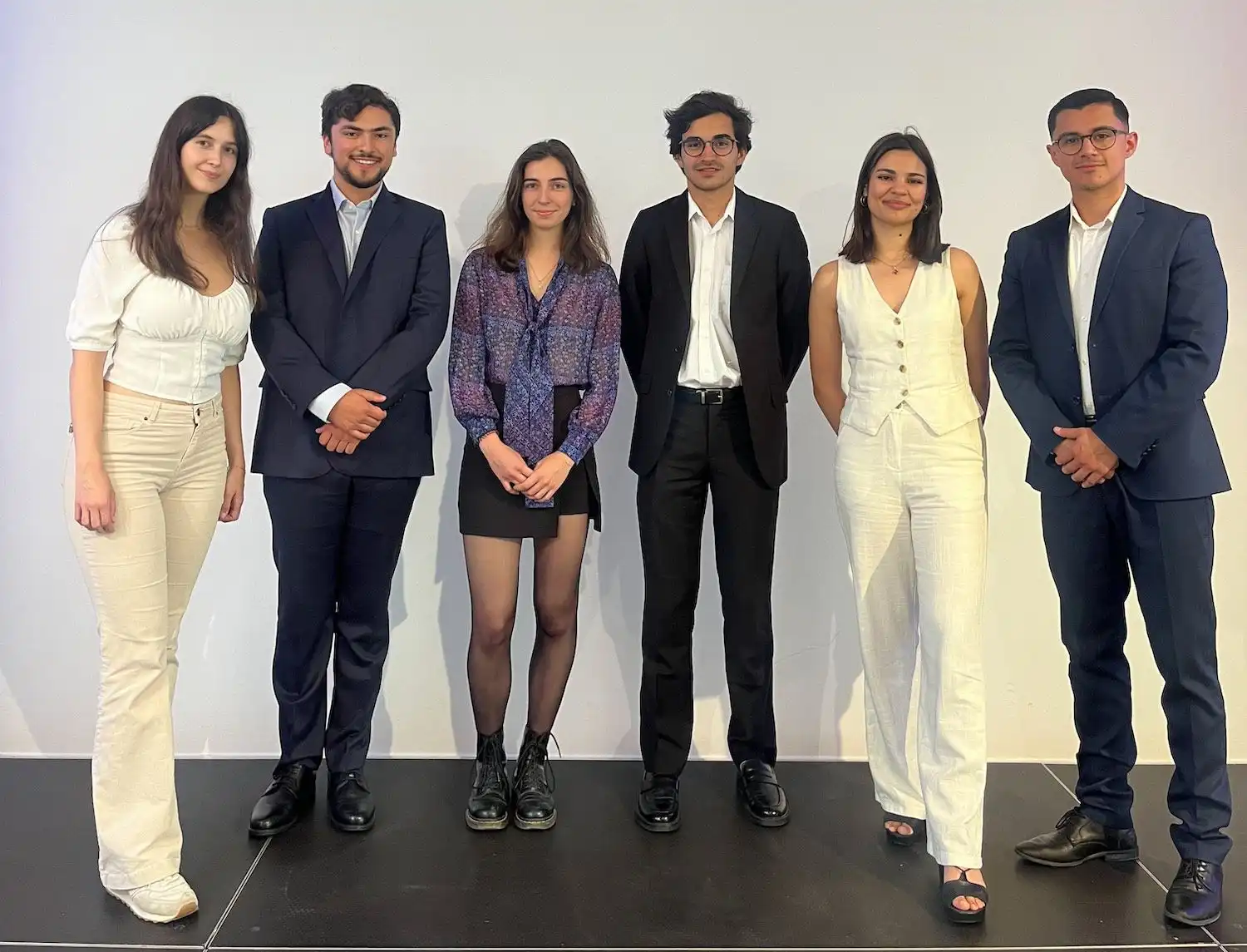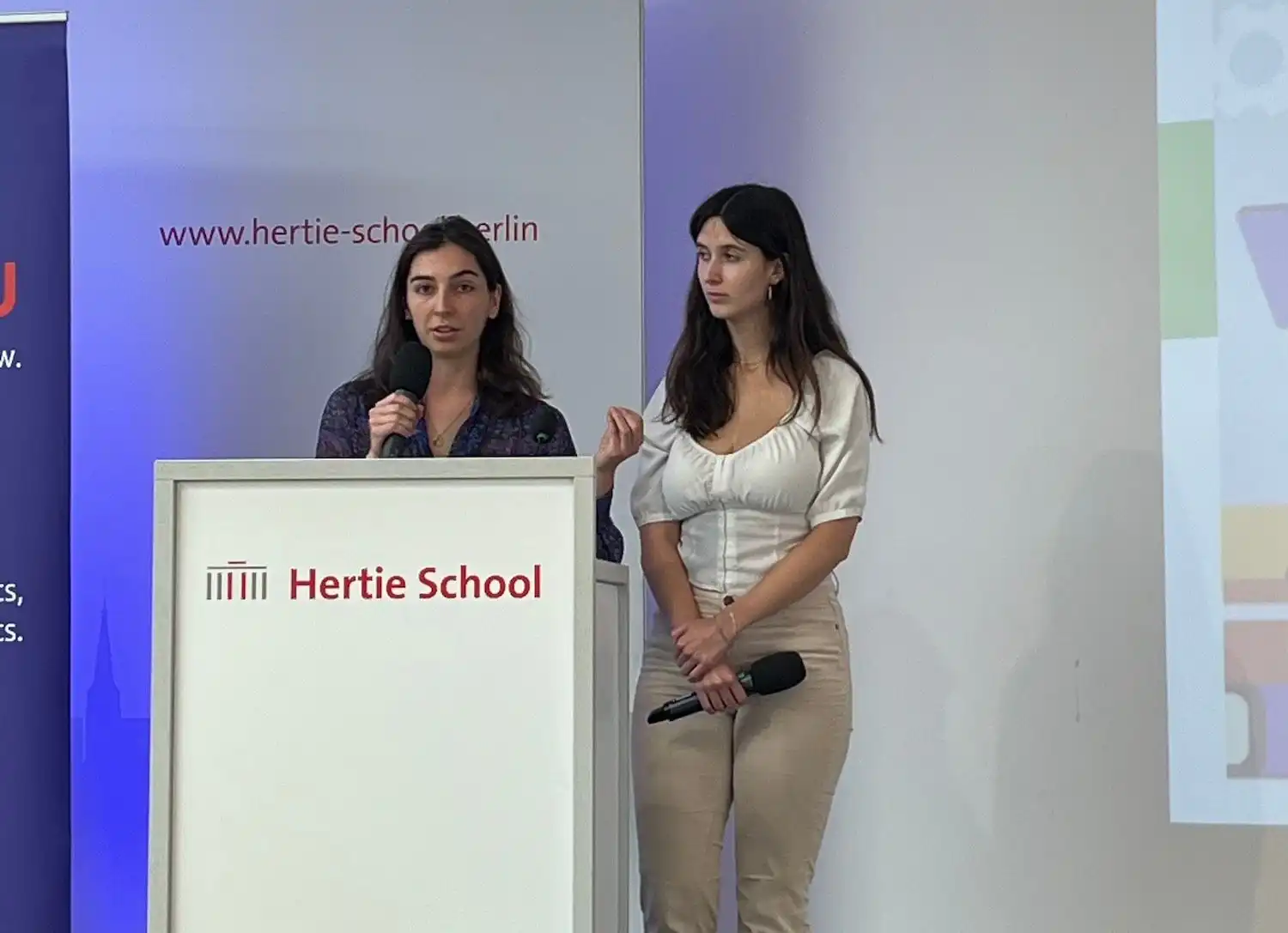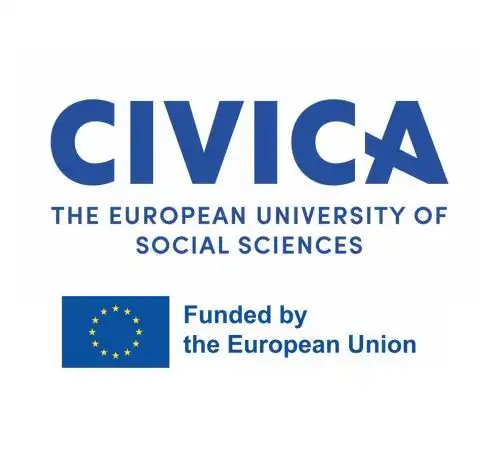Home>Sciences Po Students Win 1st and 2nd Place in a Competition on the Future of Europe in Berlin
07.06.2024
Sciences Po Students Win 1st and 2nd Place in a Competition on the Future of Europe in Berlin

The futurEU competition is an opportunity for all students of the CIVICA alliance, including Sciences Po students, to learn, explore and network with each other. More importantly, the Competition is a platform that encourages students to actively find and propose policy solutions on reforming the European Union. The competition is open to undergraduate and graduate students as well as PhD researchers enrolled at one of the 10 CIVICA partner universities.
On May 2024, the semi-finals and finals of the 4th edition of the Competition took place at the Hertie School in Berlin. From the initial 87 teams (216 students), eight teams made it to the finals, after winning a popular vote and passing the judge's selections. Six Sciences Po students made the cut. Three of them were even part of the first two winning teams!

To celebrate the EU elections, which take place on 9 June, the futurEU Initiative organised its 2024 Competition as a special edition. Teams from diverse backgrounds and perspectives converged, contributing fresh ideas and solutions to propel Europe into a new era. The participants had to navigate the complexities of a post-Brexit era and grapple with the challenges posed by the Russian-Ukrainian conflict.
> Watch the replay and find out more about their proposals and their journey.
Marion Beaulieu and Sára Kende, students from the Master's degree in European Affairs at Sciences Po's School of Public Affairs, were the winning team of the competition!
Their proposal: “Train for your future - an ambitious vision for green jobs in the EU”. The EU’s green energy transition will significantly alter employment. The shift away from fossil fuels will impact jobs, particularly in sectors like coal, while the automotive industry’s move to electric vehicles will require workers to update their skills. However, the green transition could also create up to 884,000 new jobs by 2030. The proposal aims to bridge the skills gap, ensuring those affected by job losses can find employment in emerging sectors and promoting dignified, well-compensated jobs. Our proposal advocates for comprehensive training programs, targeted education through a Green Energy Erasmus Programme, and outreach to marginalised groups to ensure all workers benefit.
Their experience: As we are committed to sustainability and our proposal focuses on the green energy transition, we decided to travel to Berlin by train. We had a long but comfortable journey, and we even got the chance to quickly check out the Kölner Dom on our way to Berlin.
The organisation was great, the organisers were friendly, helpful and professional. We got the chance to meet the other semifinalist teams the day before the competition in the informal setting of a traditional German Biergarten.
On the day of the competition, the semi-finals took place in the morning, where the 8 semifinalist teams presented their proposals and answered questions by the judges and the audience. After deliberation, the judges announced that we were one of the teams that got into the final! This was followed by the most stressful three hours of our stay in Berlin, where we had to redo our slides and change our presentation following the feedback from the judges, and then present our proposal again.
In the end, the judges and the fellow semifinalists chose our team as the winner for both the popular vote and the whole competition. It’s still hard to believe it, but we are really thankful! After the end of the competition, we had an amazing celebratory dinner with all the semifinalists, organisers and judges.
Alessandra Turrisi, a first-year Master's student in International Development at Sciences Po's Paris School of International Affairs (PSIA) teamed up with Anselmo Scano, an International economics and management third-year student at Bocconi University, and were runner-ups of the competition.
Their proposal: We proposed an EU Purple Card to increase the number of low-skilled migrant workers coming to Europe. We modeled it after the EU Blue Card, which targets high-skilled migrants. We believe it is important to introduce a new narrative on immigration, one focused on the opportunities it brings to address EU challenges such as labor shortages and the demographic winter. We also think that providing alternatives to dangerous routes is not only a more realistic and efficient approach to immigration but also a management strategy that reaffirms Europe's commitment to human rights and restores dignity of migrants coming to Europe.
Their experience: Our journey in Berlin was incredibly fulfilling and intense. The day of the competition everybody was a bit nervous but excited about the possibility to discuss and promote an idea on which we had been working on for months at that point. Anselmo and I had been rehearsing our presentation so much as well as any possible question they could have asked. However, on stage, we received many unexpected questions and it was interesting to see our idea being challenged live. Sometimes the answers were easy as we had been researching this topic through and through, for others instead we had to think quickly and I am really happy we were on stage as a team as we compensated and supported one another.
I think in general the experience was really different from what we do normally, we write many policy briefs in our university but we often have short term projects and we cannot incorporate feedback to improve our work. For this competition, Anselmo and I had to incorporate feedback twice, first after the campaign proposal and then after we got selected for the finalist round during the competition day in Berlin, after which we had only two hours to work on a new presentation.
Finally, this opportunity with CIVICA was also a great way to think about things we learn in class in a different and more original way, as well as learn independently about new fields of interest. In my case, as I study international development, I am not often dealing with EU legislation. However, for this competition I had to study so much and learnt so much more than I could imagine. Going to Berlin was also an amazing experience to exchange with other students of social sciences across Europe. For example, the ideas presented gave us a chance to discuss the upcoming European elections and how we would like to see our proposals in the current political debates.
Sebastian Ramirez Hernandez (Social Sciences Professional Certificate for Young Refugees), Tomás Noriega Velasco (Master in Politics and Public Policy at the School of Public Affairs), Diego Choussy (Master in Economic Law at the Law School) teamed up for the competition.
Their proposal: When we initially found out about the futurEU competition, we began discussing topics that interest all three of us. Given our shared Latino heritage and our studies at Sciences Po, the phenomenon of migration was a topic that resonated deeply with each of us. We identified that one of the principal issues the EU faces regarding migration is the lack of a cohesive and effective seasonal working policy that binds all member states. This realisation led us to the idea of reinventing the European Union's Seasonal Worker Policy.
Over the next few weeks, we conducted personal research and had some coffee meetings to exchange our findings and thoughts. Together, we structured the problem and crafted recommendations to address it. We were thrilled when our proposal passed the popular vote, and we eagerly refined it for the judges' phase. Being selected to travel to Berlin for the semifinals was an immense honour and an exciting opportunity, especially since none of us had visited the German capital before.
Their experience: Upon arriving in Berlin, we had the opportunity to meet other contestants. The day of the competition was filled with anticipation as we witnessed the impressive proposals from other groups. When it was our turn, we presented our project with pride, representing Sciences Po alongside three other students from our university. Despite not advancing to the finals, we were proud to see our fellow Sciences Po colleagues make it through, with two of them ultimately winning. Their proposals were outstanding, and we felt honoured to share this journey with them.
Reflecting on the experience, we realised how much we had learned about public policies and migration in the EU and globally. The futurEU competition, facilitated by Sciences Po and its CIVICA alliance, provided an invaluable platform for us to enhance our academic knowledge and apply theoretical concepts in a practical setting. Moreover, it allowed us to connect with inspiring individuals from across the European Union. We are grateful for this incredible opportunity that not only enriched our educational journey but also broadened our horizons and fostered meaningful connections.

Open house days 2025

Virtual Undergraduate Open House day 2025
Come meet our teams and students at our campuses.
Virtual Graduate Open House day 2025
Meet faculty members, students and representatives and learn more about our 30 Master's programmes.